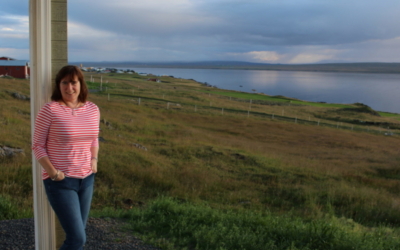New White Paper Studies How Native Grasslands Mitigate Climate Change, Provide Habitat for Species at Risk and Improve Biodiversity
SILVER SPRING, MD, MAY 5, 2020 – Wildlife Habitat Council (WHC) offers a new white paper available for download today, Native Grasslands Conservation – From small roadsides to vast landscapes, grassland habitats benefit corporate biodiversity and sustainability goals. The white paper is available for free on our website.
Grasslands are one of the most common habitat types in the world and one of the most threatened. An opportunity exists for corporations to manage privately owned grasslands in nature- friendly ways and for connectivity that will realize multiple values for many stakeholders, including benefits to climate change mitigation and adaptation, stormwater run-off, cost savings and aesthetics.
Native Grasslands Conservation highlights grassland projects of all shapes and sizes, from installing bird boxes to enhancing native grasslands in utility rights of way, showing how the private sector can meet a convergence of citizenship and operational goals that seek to reclaim grasslands and restore biodiversity. Case studies include:
Boeing: Emery Landfill
BP: Dutchman
DTE Energy: River Rouge Power Plant
Exelon: ROW, Buffalo Grove Prairie
General Motors: Chevrolet Logistics Center
ITC: ROW, Crow Island
Koch: Beaverhead Ranch
Sponsored by Ontario Power Generation, this white paper includes a forward by Aaron Del Pino, Vice President, Environmental Health & Safety, in which he states, “Reaching beyond our properties, OPG’s regional conservation partners have enhanced or created over 400 acres of grassland and wetland across southern Ontario. Through the coordinated efforts of corporations, conservation and research organizations, and education partners, along with support from groups like WHC, we can all help secure the long-term future of grassland species in North America.”
About Wildlife Habitat Council:
For 30 years, WHC has been promoting and certifying ecological stewardship action on corporate lands through partnerships and education. Since only 10-15% of the world’s land surface is protected, private lands provide an essential opportunity for restoring and protecting biodiversity. As the only international conservation NGO focused exclusively on the private sector, WHC provides a framework for voluntary conservation action on a wide variety of corporate lands. WHC’s corporate members represent some of the leading national and multinational corporations seeking to support sustainable ecosystems and the communities that surround them. These efforts have resulted in more than 1,000 certified programs across 47 states and 28 countries.


